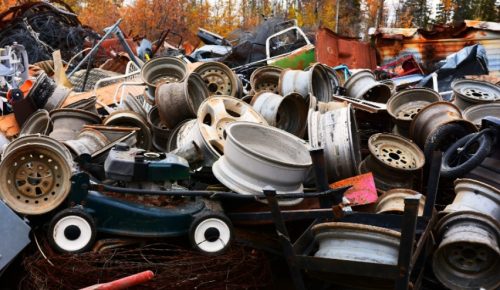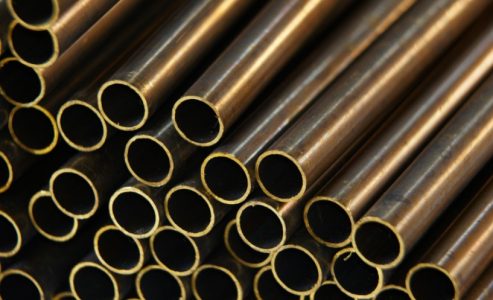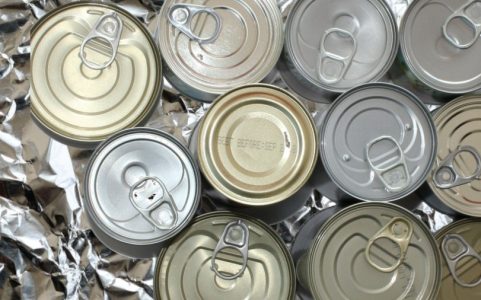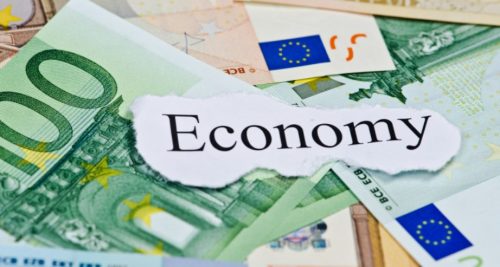
What Are the Benefits of Recycling Metals?
Metal is a widely recyclable material that may be recycled in a variety of ways. As public awareness of environmental issues rises, so does the desire for more recycling, particularly of products that might otherwise wind up in landfills.
What is Metal Recycling?
The process of taking waste metal, processing it, and generating new metal stuff is known as metal recycling. This recycled metal can be utilized to create metal items, which can then be recycled once they’ve been used or are no longer required.

Metal recycling has several advantages, including energy savings and environmental benefits.
Which Metals Can be Recycled?
Ferrous and non-ferrous metals are the two main forms of metal. Both of Them can be recycled.
Copper
High-quality copper can retain up to 95% of the value of the original source metal. Scrap copper wiring can be found at the bottom of exercise equipment, televisions and computer monitors, inside laptops and DVD players, inside large and small electrical appliances, and in handheld gadgets, among other places.
Brass
Have you recently replaced your doorknobs with brass?

Many modern doorknobs are constructed of brass, which sells for a high price on the scrap market. For example, if you’ve recently replaced all of your doorknobs and stashed the old ones away, you may end up with a load of 50kg of great recycling metal!
Zinc
The average road car is believed to have 10kg of zinc in galvanised body parts. Vehicles that have reached the end of their useful lives can be dismantled, and the pieces recycled and turned into like-for-like parts of the same material quality.
Tin

Recycling tin saves 99 percent of the energy it takes to make it from scratch. Old kitchen equipment, such as soup ladles, woks, and cooking bowls, are a fantastic source of scrap tin at home.
Advantages of Recycling Metal
Good for the Environment

Both the economy and the environment benefit from recycling waste metal by reusing it or selling it for reuse. When scrap metal is recycled, it takes up less space in landfills, allowing more space for actual trash like food and non-recyclable items. By clearing space in our landfills, we can reduce pollution in the environment.
Reduce Energy Use
The production of raw metal materials consumes significantly more energy than recycling metal. A lot of expensive and environmentally destructive energy is consumed from mining and processing the ore through shaping and treating the metal for usage.
Repurposing discarded metal is a considerably more waste management process; for example, recycled aluminium uses 95% less energy! Copper is another energy-efficient scrap metal, using 90 percent less energy when recycled.
Benefit Economy

While money isn’t everything, the recycling industry helps to boost the economy by producing jobs and promoting local investment. Whereas depositing metal in a landfill may just require one employee to drive a truck, the recycling process necessitates the participation of several employees. Recycling is not only good for the environment and also good for the economy.
Frees Up Your Space
Metal scraps take up a lot of room in our garages, sheds, and yards, among other places. It’s not only an eyesore, but it also serves no use if it’s just being stored. Recycling scrap metal is a worthwhile investment in the environment. When it comes to getting paid for your exceptional service, knowing what materials can be sold as scrap, finding the correct buyers, and getting the greatest prices for your old appliances are all important considerations.
save money by reducing production costs

Metal recycling provides financial incentives, and there’s no guilt in making use of them. Most businesses recycle since it is less expensive, allowing you to reduce production expenses (and convert this spending into collection costs). It is significantly more cost-effective to use existing waste metal rather than create it from scratch.
Minimize carbon Emission
In order to satisfy strict “zero to landfill” goals, businesses are increasingly focusing on recycling all raw materials. Recycling metals is a better option for the environment than other methods of disposal because it minimizes emissions and pollutants. You may help your company meet its carbon reduction objectives by recycling metals.
A ton of recycled aluminium prevents nine tons of CO2 emissions from entering the atmosphere. According to the Planet Mark environmental organization, every ton of recycled aluminium saves five tons of bauxite, the raw material used to make aluminium.
Can Earn You Money

If you need another reason to recycle your scrap metals, consider the fact that it can earn you money. Aluminium, iron, steel, brass, and copper are all readily accepted by scrap yards. The amount of cash you could make differs. Varying metals have different values, and different companies will pay out differently. Non-ferrous metals, such as copper and zinc, are often worth more than ferrous metals, such as iron and steel.
How to Recycle Metals?
Segregation, preparation, burning, and forming are the four stages of the metal recycling process. You won’t have to bother about these processes if you’re wanting to recycle metals within your company, but it will help if you can identify the types of scrap metal you’ll be giving. Because numerous elements and types of machinery are involved in the recycling of metals, facilities must adhere to severe health and safety and environmental requirements.